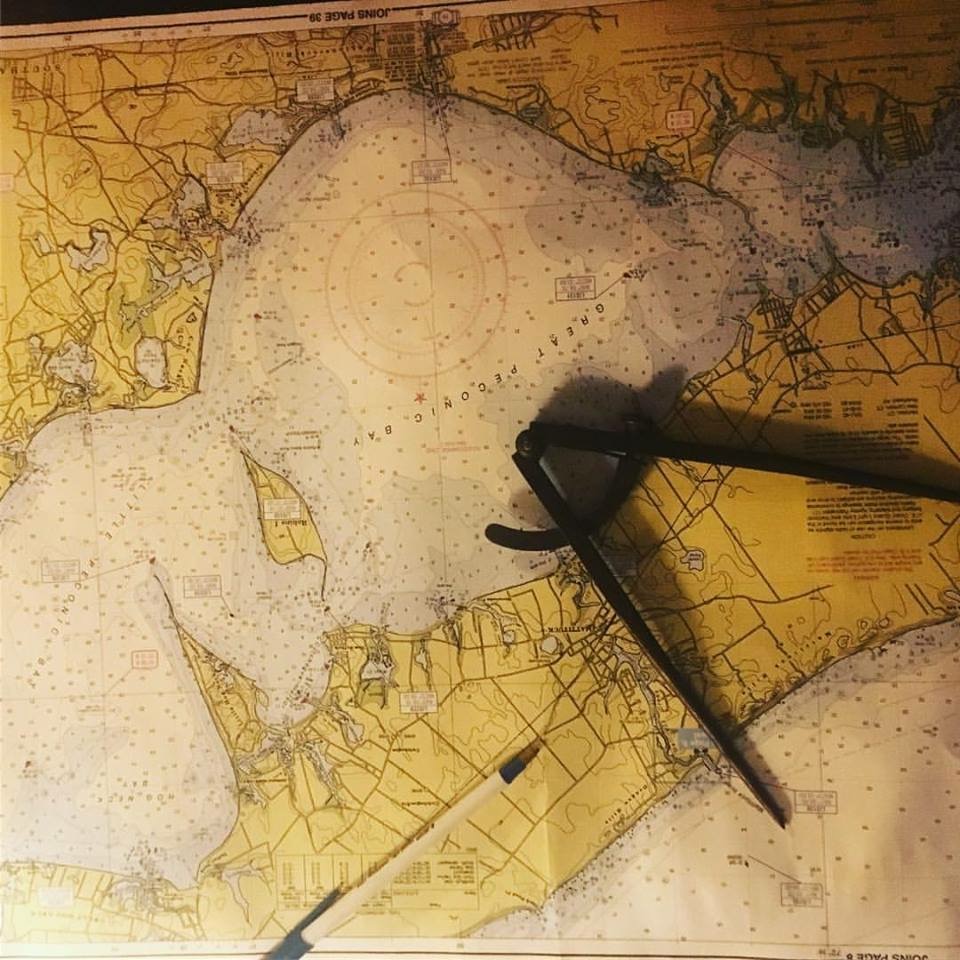
More disclaimers…
OK, do you REALLY want to buy a boat? Really? If you answered yes immediately, cool your jets and listen. You’d better be sure because a boat that is not well-maintained will quickly become a liability. You could incur fines should your boat break free of its dockage, sink, or leak oil into the water, not to mention the storage fees that pile up, and of course we’ve already discussed the whole getting yourself or others killed thing. Too many would-be sailors ignorantly buy boats and wind up abandoning a once noble vessel then sticking someone else with the bill – be it a boat yard or the taxpayers. Don’t be an inconsiderate jerk and expect someone else to clean up your mess.
By the way, before we go any further, do you get seasick? Nothing can ruin your day on the water like seasickness. Speak to your doctor and assure that you can handle the constant rocking and rolling. If you find that you’re inconsolably seasick and no medication works for you, stay home. You’re no good to anyone when constantly puking, and, without control of your faculties, you’re a liability.
Do Your Homework
Oddly enough, New York State does not require a captain’s license or any other training to operate a boat on state waters. Consequently, there are lots of idiots on the water who just buy a boat and take it out with absolutely no idea what they’re doing.
Don’t be an idiot.
DO YOUR HOMEWORK!
Start by learning the concepts that will allow you to harness the forces of nature and propel a boat across the water. We live in an age where info on every topic you could possibly want to learn is easily accessed on the internet. This WikiHow article is a great primer. For some more depth, pick up Steve Sleight’s The Complete Sailing Manual – this book covers it all.
Next, consider furthering your education by taking classes…
Classes
The American Sailing Association and US Sailing are the big sailing educators in the US. Use their websites to find a qualified instructor in your area. Many of the yacht clubs we’ll discuss also offer lessons in-house. You’ll quickly find that the ASA and US Sailing courses are expensive. These courses are great if you can afford them, but don’t let money stop you from learning. In fact, I’ve never taken a sailing course. I learned all I know from family, reading, research, and from volunteering as crew for experienced captains. (I’ll extoll the virtues of volunteering as crew later on).
The United States Coast Guard Auxiliary
You’ll also need to learn seamanship, radio communication, weather, navigation, and the ‘rules of the road’ (right of way, etc). A great way to develop all of these is to join your local Flotilla of the Coast Guard Auxiliary.
I can’t say enough about the Auxiliary and recommend that you take advantage of all this great organization has to offer. As a member of the all-volunteer USCG Auxiliary, you can take free classes on the above topics and much more – all for a very reasonable annual fee. Dues for my Flotilla are currently $70 per year, and worth every penny.
In addition to training opportunities, you can volunteer as much or as little as you want – from basic tasks like helping visitors during Fleet Week to Search and Rescue (SAR) missions as Air Crew on USCG helicopters. If you put in the time for your certifications, there’s a lot you can do with the Auxiliary. You’ll also get the benefit of meeting other mariners from your local waterways – plus membership will usually get you a break on boat insurance.
Required Reading for Sailboat Owners
Here are some great books that every sailor should own:
- Chapman’s Piloting and Seamanship – The Bible of Boating…
- Complete Illustrated Sailboat Maintenance Manual by Don Casey
- Boatowners Mechanical and Electrical Manual by Nigel Calder
These magazines are REALLY helpful:
- Practical Sailor – The “Consumer Reports” of the sailing world – unbiased testing and reviews of sailboats, gear, apps, etc.
- Good Old Boat – Articles of interest to those sailing and maintaining their own vessel
Conclusion
The books, websites, classes, and magazines I’ve discussed should give you a strong foundation. Once you understand the concepts, it’s time to get on the water and put what you’ve learned into practice. In Chapter III at NewYorkCitySailor.com, I discuss the most important lessons of all – crewing for an experienced captain.
Thanks for reading! Feel free to leave a comment. If you’d like to have future posts sent to your inbox and receive notice on product specials from the New York City Sailor SHOP, please subscribe – see the “Subscribe to Blog / Sales” link on this page.
There are many more helpful articles at the BLOG, and more to come…
While you’re here please check out the SHOP – over 6,600 discount marine products and counting!
Your business is appreciated and helps to keep this site running. Please tell your friends!
FYI: If you don’t see products you’re seeking please send an email via the CONTACT page.
I’m adding new products all the time and can get just about anything you need.
Don’t forget to “Like” and Share the New York City Sailor FACEBOOK page – also on TWITTER and GOOGLE+.
Fair winds!

